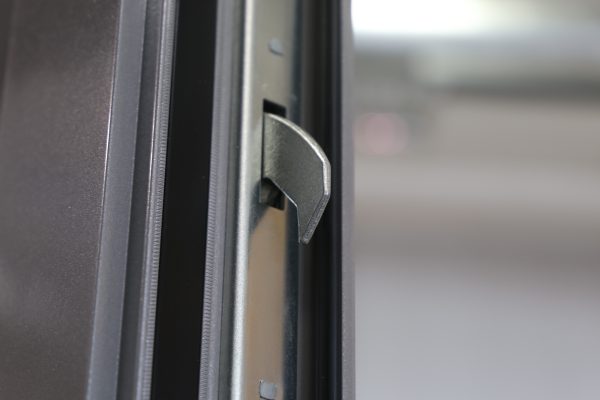Your home should be where you feel the safest from intruders, so security should be a top priority when choosing new external doors and windows which provide easy access to your home. PAS 24 and RC3 | RC4 burglary-resistant security standards help you achieve that security.
Locks are always taken for granted to be ‘fit for purpose’, but that is not always the case. Materials used to construct the doors and windows may be weak or fabricated with poor fittings and hinges. This is why there are security standards to deter criminal activity and stop unauthorised access by forcing locks or destroying the structure of the door or window.
What are PAS 24 and RC3 | RC4 security standard for doors and windows?
When you are looking to purchase new doors and windows, you will come across various schemes of which the standards such as PAS 24 and RC3 | RC4 burglary-resistant security standards help you achieve that security to protect us against crime.

In England and Wales, windows and doors for new dwellings must comply with the Building Regulation Approved Document Q: Security – Dwellings; in Scotland, it is identified as Building Standard 4.13. For Document Q and Building Standard 4.13, PAS 24 is the specified certification. Northern Ireland currently has no such standard; security standards are set across many building regulations.
These Building Regulations do not apply to replacement doors and windows for your home. You will come across many European-designed and manufactured windows and doors sold and installed in Great Britain, referring to the RC standard, generally RC2, RC3 and RC4.
What is the PAS 24 security standard for doors and windows?
PAS 24 is the specified certification for the England and Wales Approved Document Building Regulations and Scotland’s Building Standard 4.13. Therefore, for new dwellings, which include home extensions and changes of use from commercial to residential and garage conversions to an annexe, your windows and doors must be PAS 24 certified to meet Building Regulations.
As with any building work to your home, you must check with your local Planning and Building Control. Failure to comply with the Building Regulations can result in enforcement actions or issues obtaining building control approval.
What are the DIN EN 1627 and RC2 | RC3 | RC4 security ratings?
RC stands for Resistance Classes for the European standard DIN EN 1627, which specifies requirements of doors, windows, curtain walling, grilles, and shutters against unauthorized access.
DIN EN 1627 is part of a series of testing methods for burglary resistance of doors, windows and shutters and their frames and locks, which are:
| DIN EN 1628 | Tests the resistance to static loading – which measures the amount of force that is applied over a specified time to key points in the door or window |
| DIN EN 1629 | Tests the resistance to dynamic loading by applying a series of impacts simulating the effect of a physical attack. |
| DIN EN 1630 | Tests the resistance to manual attack using tools to simulate an attempted break-in, such as using screwdrivers and crowbars. |
The classification of the classes starts with the basic protection of RC1 and continues to the highest level at RC6. The classes are measured in resistance levels on the amount of time it takes and the type of tools required for an intruder to break in, RC1 basic or no tool to RC6, where intruders use power tools and obtain quick entry.
PAS 24 and RC3 | RC4 are they the same?
Both PAS 24 and RC3 | RC4 standards test door and window security performance. As the standards are from different countries, they have different testing conditions, which means no direct correlation exists between them. DIN EN 1627 resistance level is measured in levels RC1-RC6, and PAS 24 has only one standard.
Next, the question is whether BS EN 1627 is an acceptable certification for Document Q; here is some information regarding this from different sources:
- Document Q does not list BS EN 1627 as an acceptable certification; it just specifies PAS 24.
- The Secured by Design Home Guide publication states, ‘Please note that if manufacturers wish to use the European Standards as a route to compliance to PAS 24:2022 or PAS 24:2016*, then all testing must be conducted in accordance with the latest published version of the ‘UK Police Service Secured by Design (SBD) Interpretation Document for BS EN 1627:2021, BS EN 1628:2021, BS EN 1629:2021 and BS EN 1630:2021.’ This document can be found on the Secured by Design website within the SBD Standards Explained section.
- As mentioned previously, many doors and windows sold in the UK are designed and manufactured in Europe. The door and window testing company ift in Germany states that it ‘also test windows and doors according to PAS 24 which makes it possible to export to Great Britain’. Implying that PAS 24 and RC3 | RC4 may not be applicable in Great Britain.
- The National Protective Security Authority produced a Forced Entry Standards Booklet published on 2 June 2024, comparing various standards. On the first view, RC2 would seem comparable to PAS 24. However, RC2 does not include tools such as chisels and crowbars, which means RC3 would be the minimum comparable Resistance Class.
Then, there is the trying to match the testing criteria between PAS 24 and RC3 | RC4 like-for-like. PAS 24 testing uses a range of tools to simulate a forced entry, such as crowbars, chisels, screwdrivers, hammers, and a weighted pendulum to deliver impact forces. Resistant Classes RC1-RC6 use a range of different tools and forces as you move up the classes.
Both PAS 24 and RC3 | RC4 Resistant Classes are constantly changing the testing conditions which makes it challenging to keep up with which RC would be comparable with PAS 24. For example, previous to the latest version of PAS24:2022 +A1:2024, published on 30 September 2024 which includes newly established ways to achieve forced entry, it was commonly agreed in the industry that doors and windows should meet at least resistance class RC3 for enhanced security. As the details of this new standard have yet to become common knowledge, whether this is still an accurate assumption has yet to be seen. In addition, the British standard BS EN 1627:2021 Pedestrian doorsets, windows, curtain walling, grilles and shutters. Burglar resistance is currently under review.
How to choose between PAS 24 and RC3 | RC4
So, you can see it is not easy for everyone in the industry to keep up to date, let alone homeowners, and there appear to be many grey areas.
To try and summarise, BS DIN EN 1627 may be able to satisfy the requirements of Document Q by achieving the Secured by Design accreditation, provided that the products meet the appropriate resistance classes specified in the regulation.
Our advice for new dwellings, home extensions, and annexes is to only accept PAS 24 certified products in order to adhere to the current Building Regulations. The minimum possibly acceptable for replacement windows and doors is RC3; RC4 would be ideal, depending on the installation circumstances.
PAS 24 and RC3 | RC4 is a very complicated subject, and you will be subjected to lots of different advice from many directions. You can learn more about Document Q and relevant standards in Scotland and Northern Ireland. If you would like some help clarifying which PAS 24 and RC3 | RC4 security certification is right for you or advice on which doors and windows would best suit your project, particularly for commercial projects with even more standards, please get in touch.
It’s worth also remember that some European systems choose to test via the RC3 or RC4 route rather than the PAS24.
And remember. Many door installers ride off the back of older tests or tests carried out by companies higher up the supply chain. Some configurations of windows and doors haven’t been submitted for testing. And most securith tests use laminated glass, which you should consider upgrading to as well. Contact us for more information and advice.
Is PAS 24 mandatory for all new dwellings?
Yes, in England, Wales and Scotland. New dwellings include self-builds, new home extensions, and converting existing buildings with a material change of use.
Is PAS 24 mandatory for all new doors and windows in an existing building?
For an existing building being converted to a dwelling, YES, this is a ‘material change of use, which means where a building was used for one purpose and changed to another. Examples include offices converted to flats and a garage converted to a liveable annexe.
Does PAS 24 apply to a home extension or new annexe?
Yes, these are classed as new dwellings.
Is PAS 24 mandatory for replacement doors and windows?
For replacing in an existing home, where no new structures are added – No. However, there are other Building Regulations that they must meet.
If not for a new dwelling, building conversion or home extension, which are mandatory for Building Regulations, then there are other standards that may be comparable, if not better, such as the DIN EN 1627 classified into Resistance Classes RC1 to RC6.

